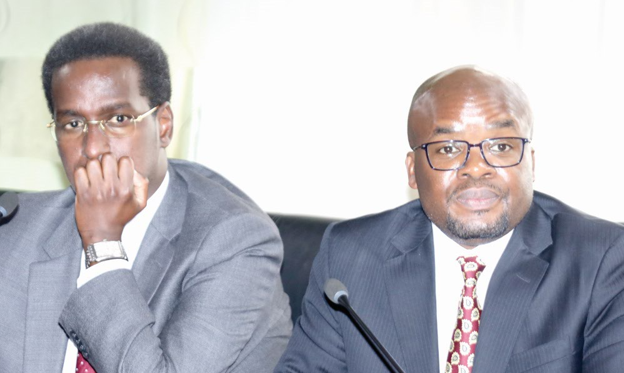Proposal gives guards powers to arrest
By Mercy.Mwai, January 31, 2024Private security guards will have the powers to arrest and search individuals within the premises they are securing without a warrant of arrest if Parliament approves draft regulations by the Ministry of Interior.
The powers to arrest contained in the draft Private Security Regulations (2024) are among several other sweeping powers the guards will enjoy once the regulations are adopted.
“A private security service provider may under no circumstances detain an arrested person in any facility other than a police lock-up facility.
A private security service provider who effects an arrest shall be under duty to cooperate with a police officer in investigation of the offence and where necessary, in adducing evidence in a court of law, the draft.
Draft tabled before the Departmental Committee on Administration and Internal Security chaired by Narok West MP Gabriel Tongoyo, states that a private security provider will have powers to arrest a person suspected to have committed an offence and immediately hand them over to the nearest police station or post.
The guard will, however, be required to use non-violent means in arresting any suspected offender and may only apply force when non-violent measures have failed or to prevent an escape.
The force used should be proportional to the objective sought to be achieved, the seriousness of the offence and the resistance of the person against whom it is used.
Upon arrest of a suspected offender, the regulations allow the private security service provider to seek reinforcement from a fellow guard or a police officer, accompany the arrested person to the nearest police station or post together with any material that may be connected with the arrest.
The private guard is also expected to hand over an arrested person to the police officer in charge of a police station or post; and record and sign a statement explaining the circumstances and reasons for the arrest.
Use of force
“A private security service provider who uses any form of force shall immediately report to the police station or post, explaining circumstances that necessitated the use of force and the police officer shall record that report,” the draft adds.
On exercising the power of search, the regulations allow a private security service provider to search a person on entry or exit of a building or property they are securing without warrant.
They include personal body, bag or vehicle search and may be done either physically or machine assisted and may take the form of daily routine, intelligence search based on some pre-known information or random check.
“A search by a private security service provider shall be conducted with dignity and decorum.”
Speaking when he appeared before the committee, Interior Principal Secretary Raymond Omollo defended the regulations, saying the power of arrest granted to the private guards mirrors the powers given to Kenyans by the Constitution to arrest individuals whenever they commit an offence.
Omollo said the government allows the deployment of private guards in public institutions such as the Judiciary to offer security as the country does not have adequate police officers to offer such services.
“Security guards may arrest a person and hand over the person to the nearest police station.
This is just an emphasis of the powers given to ordinary citizens but of course it had limitations,” the PS explained. Director General of the Private Security Regulatory Authority Fazul Mohamed also defended the regulations, saying the private guards have an opportunity to also protect Kenyans whenever they are doing their job.
Their statements came after MPs who sit in the committee sought to know whether the government has put in place checks to ensure the private guards do not engage in excesses.
Homa Bay town Peter Kaluma raised concerns that the country could run the risk of private guards being a security on their own and even form militia groups if proper control measures are not put in place.
Kaluma regretted that most public institutions like the Judiciary are spending billions of shillings to hire private security guards and sought to know what the ministry was doing to address the same.
